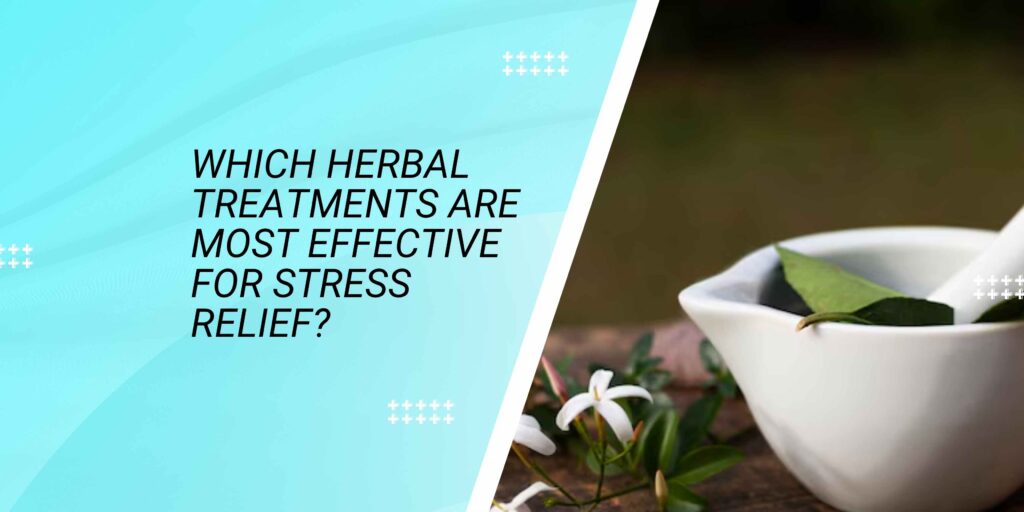Stress is something everyone experiences from time to time. Whether it’s due to work pressures, personal challenges, or daily life demands, stress can take a toll on our physical and mental health. While there are many ways to manage stress, one of the most natural and effective methods is through herbal treatments.
Understanding Stress and Its Impact on the Body
Before we dive into herbal remedies, it’s important to understand what stress is and how it affects the body. Stress is the body’s natural response to challenges or demands, often referred to as the “fight or flight” response. When we face stressful situations, our body releases hormones like adrenaline and cortisol, which prepare us to respond quickly.
Note: Discover natural healing and wellness at Dubai Herbal and Treatment Center, where traditional remedies meet modern techniques. Find relief from stress, pain, and imbalances with the help of skilled practitioners. Ready to restore your health? Visit Ayuzen Ayurvedic Clinic LLC for a holistic consultation today and start your journey towards a healthier.
While short-term stress can be helpful in certain situations, chronic stress is harmful. Prolonged stress can lead to a range of health issues, including:
- Mental Health Problems: Anxiety, depression, and burnout.
- Physical Health Problems: Headaches, high blood pressure, digestive issues, and a weakened immune system.
- Sleep Disturbances: Difficulty falling or staying asleep.
Herbal remedies can help balance the body’s stress response and promote relaxation without the side effects of synthetic medications. Let’s look at some of the most effective herbs for stress relief.
Popular Herbal Treatments for Stress Relief
1. Chamomile
Chamomile is one of the most well-known herbs for relaxation. Often consumed as a tea, chamomile is renowned for its calming effects on the body and mind. It has been used for centuries as a natural remedy for anxiety, insomnia, and digestive issues.
How Chamomile Helps with Stress Relief:
Chamomile contains compounds like apigenin, which bind to specific receptors in the brain to produce a calming effect. This helps to reduce anxiety and promote better sleep. It’s also known for soothing the digestive system, which can often be affected by stress.
How to Use Chamomile:
- Chamomile Tea: The most common way to enjoy chamomile is by drinking chamomile tea. Simply steep the flowers in hot water for 5-10 minutes and drink it before bed or whenever you’re feeling stressed.
- Chamomile Capsules: Chamomile is also available in capsule form for those who prefer a more concentrated dose.
2. Lavender
Lavender is another popular herb used to promote relaxation and reduce stress. Its soothing fragrance is commonly used in aromatherapy, but lavender also offers other benefits when consumed or applied topically.
How Lavender Helps with Stress Relief:
Lavender contains compounds such as linalool, which help reduce anxiety and improve mood. Research has shown that lavender can lower levels of cortisol, the stress hormone, and improve overall feelings of well-being.
How to Use Lavender:
- Lavender Oil: Use a diffuser to fill your space with the calming scent of lavender. You can also apply diluted lavender oil to your temples or wrists for direct relief from anxiety.
- Lavender Tea: Drink lavender tea to calm the nervous system. Combine it with chamomile for an even more powerful stress-relieving brew.

3. Ashwagandha
Ashwagandha is an adaptogenic herb, meaning it helps the body adapt to stress and return to a balanced state. It has been used in Ayurvedic medicine for thousands of years to support overall health and vitality.
How Ashwagandha Helps with Stress Relief:
Ashwagandha helps reduce the body’s production of cortisol, which is linked to stress. By balancing cortisol levels, it can reduce symptoms of anxiety, improve mood, and boost energy levels. It’s also known for improving sleep quality and reducing fatigue caused by stress.
How to Use Ashwagandha:
- Ashwagandha Capsules or Powder: You can find ashwagandha in supplement form at health stores. It’s best to take it daily for long-term stress management.
- Ashwagandha Tea: Some people prefer drinking ashwagandha in tea form. You can blend it with other herbs like ginger or cinnamon for a more flavorful drink.
4. Passionflower
Passionflower is a climbing vine known for its beautiful flowers and powerful calming properties. It’s often used as a natural remedy for anxiety, insomnia, and nervousness.
How Passionflower Helps with Stress Relief:
Passionflower works by increasing the levels of gamma-aminobutyric acid (GABA) in the brain. GABA is a neurotransmitter that helps to calm the nervous system and reduce feelings of anxiety and restlessness. Passionflower is also known to improve sleep quality, making it a great choice for those who suffer from stress-related insomnia.
How to Use Passionflower:
- Passionflower Tea: You can drink passionflower tea in the evening to help relax before bedtime.
- Passionflower Supplements: Passionflower is available in capsule or tincture form for those who prefer a more potent dosage.
5. Lemon Balm
Lemon balm is a member of the mint family and is known for its refreshing scent and mild calming effects. It has been used for centuries to reduce anxiety, improve mood, and support digestive health.
How Lemon Balm Helps with Stress Relief:
Lemon balm contains compounds like rosmarinic acid that help reduce anxiety by enhancing the effects of GABA in the brain. It’s also known to help with digestive issues, such as bloating and indigestion, which can be worsened by stress.
How to Use Lemon Balm:
- Lemon Balm Tea: Drink lemon balm tea to help calm your mind and ease digestive discomfort.
- Lemon Balm Oil: Lemon balm essential oil can be used in aromatherapy to promote relaxation and reduce stress.
6. Rhodiola Rosea
Rhodiola Rosea is another adaptogenic herb that helps the body cope with stress. It’s particularly known for boosting energy, reducing fatigue, and improving mental performance.
How Rhodiola Rosea Helps with Stress Relief:
Rhodiola works by regulating the release of stress hormones like cortisol and adrenaline. It helps improve mental clarity, focus, and overall mood, making it an excellent herb for those experiencing work-related stress or burnout.
How to Use Rhodiola Rosea:
- Rhodiola Supplements: Rhodiola is typically taken in capsule or tablet form. Be sure to follow the recommended dosage.
- Rhodiola Tea: Although less common, Rhodiola can be made into a tea to help fight stress and improve energy levels.
7. Valerian Root
Valerian root is known for its powerful sedative effects, which make it particularly useful for people who struggle with stress-related insomnia.
How Valerian Root Helps with Stress Relief:
Valerian root has been shown to help relax the nervous system and improve sleep quality by increasing GABA levels in the brain. It’s often used as a natural remedy for anxiety and sleep disorders.
How to Use Valerian Root:
- Valerian Root Tea: Drink valerian root tea in the evening to help calm the body and prepare for a restful night’s sleep.
- Valerian Capsules: For a more concentrated dose, valerian root supplements can be taken before bedtime.
Conclusion
Herbal treatments offer a natural and effective way to manage stress and promote relaxation. Herbs like chamomile, lavender, ashwagandha, and passionflower have been shown to reduce anxiety, improve sleep, and support overall well-being. By incorporating these herbs into your routine, you can find a balance between managing daily stress and maintaining a healthy.
For More Isightful Articles Related To This Topic, Feel Free To Visit: theguestblogs
Last Update: November 29, 2024






